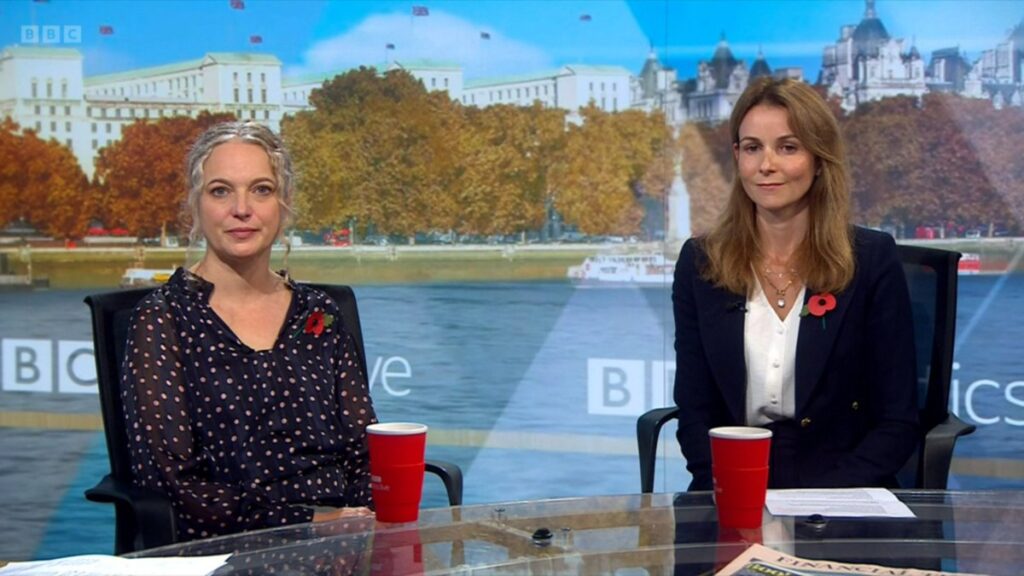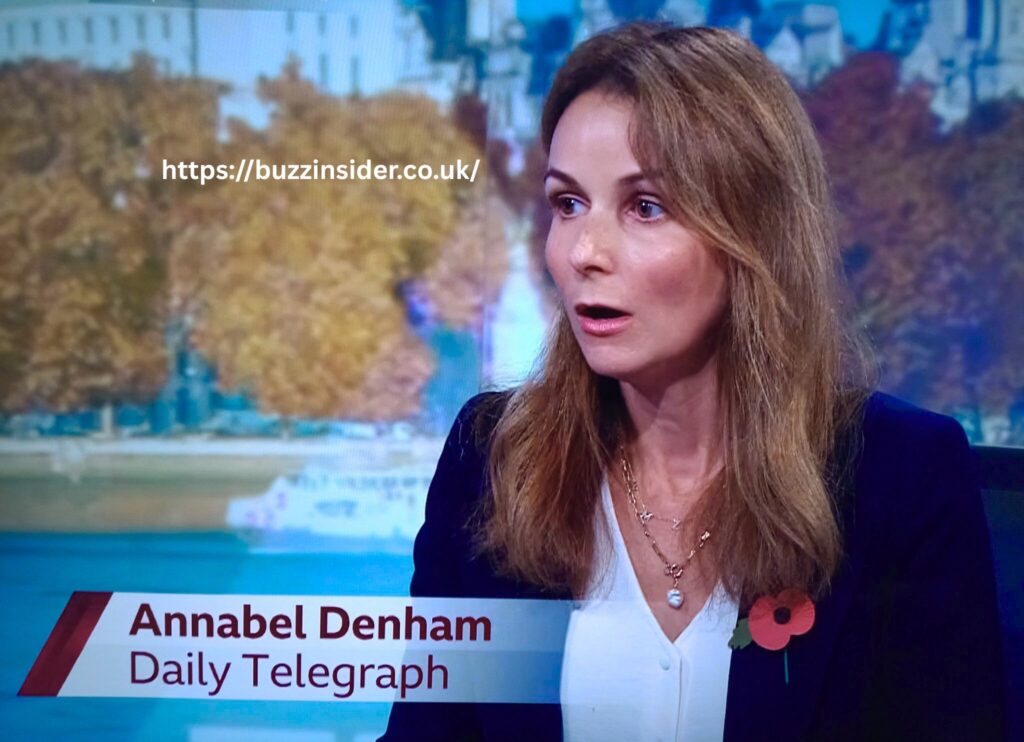If you follow British commentary, you’ve probably noticed Annabel Denham’s name popping up with increasing regularity. She’s the sort of writer whose byline makes you stop scrolling because you know you’ll get a clear argument, a tidy stack of facts, and a line or two that sticks in your head on the commute. This is a closer, human look at how she got here, what she’s doing now, and why it matters.
Who is Annabel Denham?
Today, Annabel Denham is a columnist and Deputy Comment Editor at The Telegraph the opinion desk that shapes a good portion of Britain’s daily arguments over politics, economics, and culture. She didn’t arrive there by accident. Her path runs through City A.M., where she worked on business features, and through Westminster, where she cut her teeth as a parliamentary researcher. From there, she moved into the think-tank world The Entrepreneurs Network and then the Institute of Economic Affairs (IEA) building a reputation for punchy, data-aware commentary and media chops
That background matters. It means she’s comfortable with both spreadsheets and soundbites able to move from long-form research to a tight 800 words that lands on a front page or sparks a broadcast segment. You can see the through-line: a focus on enterprise, regulation, and the nuts and bolts of how the economy actually works for people starting businesses, raising families, and navigating work.
Early building blocks business, parliament, entrepreneurship
One of Annabel Denham steady themes is how rules and incentives shape everyday life especially for founders and working women. While at The Entrepreneurs Network (TEN), she helped launch and run the Female Founders Forum, commissioning and authoring reports on barriers women face in starting and scaling companies. Those years left fingerprints on her later columns: you’ll notice she often asks a simple, grounding question will this policy help or hinder real people trying to get things done?
Before TEN, she was a Deputy Business Features Editor at City A.M., giving her a front-row seat to how markets and policy collide in London’s daily rhythm. That mix of newsroom pacing and policy depth is an underrated edge. It trains you to keep your facts tight and your claims testable.
The think-tank turn: sharpening the edge
At the IEA, where she served as Director of Communications, Annabel Denham did more than press releases. She fronted media, wrote for outlets beyond the think tank’s own channels, and pushed debates on taxation, regulation, welfare, and work culture into mainstream slots TV paper reviews, radio hits, op-eds. When writers log serious time in that role, they tend to gain two things: a thicker skin and a cleaner line of argument. You have to expect pushback and still stick the landing.
You can see that style in her CapX and City A.M. bylines short, sharp takes on issues like menopause policies at work or the reliability of stats about pregnancy and employment. The framing is consistent: is this claim sound, and does the proposed fix actually fix anything?
What she writes now (and why it resonates)
As Deputy Comment Editor and columnist at The Telegraph, Annabel Denham beat stretches from public spending to workplace norms to the unintended consequences of “feel-good” rules. Her columns tend to do three things:
- Interrogate the premise. If a headline stat is doing the rounds, she’ll look at the source, context, and what the number misses.
- Follow the incentive. She often asks who pays and who benefits not in the abstract, but in the life of a shop owner, a nurse with childcare costs, or a founder trying to hire their fifth employee.
- Offer a plainer alternative. Even when she’s taking down an idea, there’s usually a practical nudge toward something simpler: enforce what we have, remove a distortion, trust adults more.
It’s not just newspaper copy either; her broadcast appearances give another window into that approach measured, direct, and a little allergic to sloganeering.
The thread that runs through it all
If you strip the labels, Denham’s work has a consistent heart: make policy answerable to real life. That’s why you’ll find her returning to themes like:
- Work and family: flexible work, childcare costs, maternity narratives, and whether new “protections” accidentally shrink opportunities.
- Tax and spending: not just how much, but how smart and whether we’re honest about trade-offs.
- Entrepreneurship: celebrating the messy middle SMEs that don’t fit political slogans but carry communities with jobs and apprenticeships.
Why readers have warmed to her
There’s a clarity to Annabel Denhamvoice that cuts through the noise. She doesn’t bury you in jargon, and she isn’t afraid of unfashionable conclusions if the evidence points that way. In practical terms, that’s gold for readers who are tired of tribal cues. You don’t have to agree with every line to feel you’re getting a fair reading of the facts.
Also, she writes like time is valuable. Columns are tidy. Claims are checkable. That might sound basic, but in an age of hot takes and vague “discourse,” it’s a competitive advantage.
Key roles and milestones at a glance
- Parliamentary Researcher (for Lord Peter Lilley): first-hand exposure to how policy gets made.
- City A.M. (Deputy Business Features Editor / Entrepreneurs’ Editor): sharpening the nose for business stories with public stakes.
- The Entrepreneurs Network (Associate Director): Female Founders Forum lead; research + advocacy on entrepreneurship and women in business.
- Institute of Economic Affairs (Director of Comms): media strategy + commentary; frequent broadcast slots and op-eds.
- The Telegraph (Deputy Comment Editor & Columnist): current role shaping and writing opinion coverage.
Representative writing to start with
If you want to get a feel for her range:
- On workplace policy & women: pieces probing menopause legislation, pregnancy/job loss stats, and whether new rules help the people they’re meant to.
- On public spending and Covid legacies: scrutiny of fraud and unintended effects from rapid-fire emergency schemes.
These aren’t cherry-picked “greatest hits,” just samples that show how she balances empathy with scepticism.

How her editorial seat amplifies her influence
Editing opinion pages changes your vantage point. As Deputy Comment Editor, Denham isn’t only writing; she’s selecting, shaping, and sequencing arguments choosing which voices enter the national conversation and when. That role can steer what thousands of readers and plenty of MPs, aides, and business leaders end up chewing over at lunch.
It also means she’s in constant contact with experts, pollsters, and campaigners. Over time, that network tightens your feedback loop: you hear what’s moving voters, you see which stats withstand scrutiny, and you get faster at spotting fashionable nonsense. Add her regular presence across outlets Muck Rack lists The Spectator and others among her placements and the reach is obvious.
Style notes what makes a Denham column Denham
- Plain speech over puff. She writes as if she’s talking to you across a small table, not a panel.
- Evidence with edges. Facts first, but she isn’t shy about a conclusion.
- Human-scale examples. Policies are weighed by their effect on a small business owner, a nurse, a parent.
- No flab. Leans short, even when the subject begs for three detours and a white paper.
That consistency builds trust. When readers know the rules you play by, they’ll give you a hearing even on touchier topics.
Critiques and how she handles them
Anyone writing about gender policy, taxation, or welfare is going to cop criticism from both left and right. Annabel Denham response tends to be engage the argument, return to the source, and keep it civil. You can see it in her reader-response videos and social posts she acknowledges pushback and then revisits the claim with a tighter frame.
Where this is likely headed
If you’re mapping trajectories, it’s not hard to imagine a few next steps:
- A book that threads her core themes family, work, and the dignity of enterprise through real-world stories and policy fixes.
- More broadcast: regular slots that reward a calm, concise explainer’s voice.
- Bigger editorial calls inside the comment desk, especially during elections or big fiscal moments.
And because she’s already worn multiple hats researcher, editor, comms lead, columnist she has options. That kind of range is a hedge in a volatile media market.
Final take
Annabel Denham’s “rise” isn’t a single leap; it’s the steady climb of someone who’s done the unglamorous work reading the reports, calling the sources, red-penning the excess and learned to say complicated things in straightforward English. That’s rare and useful. Whether you cheer her conclusions or challenge them, you come away clearer than you were ten minutes earlier. And for a columnist, that’s the job.



